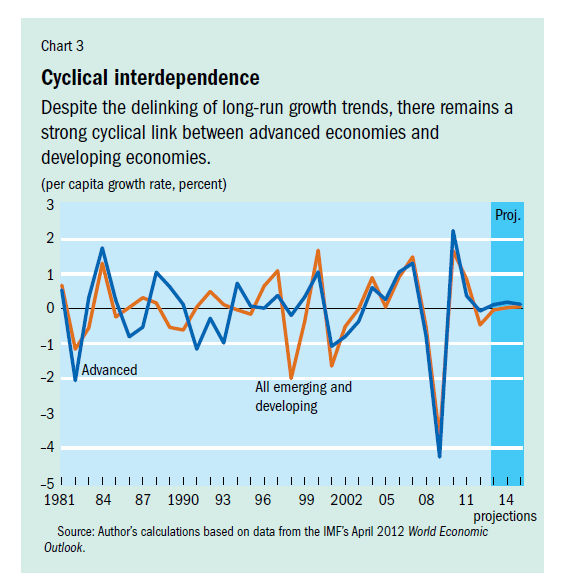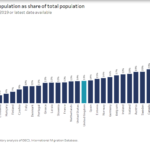The decoupling theory implies that the economic growth of emerging countries do not depend on developed countries.This theory failed miserably during the global financial crisis when markets around the world declined simultaneously. In fact emerging markets fell much more than markets in the developed world. In today’s globalized economy, emerging and developed countries are highly dependent on each other. Hence economic growth in the emerging countries is dependent on advanced economies and vice versa.
The following chart shows the strong cyclical interdepence of emeriging and developed economies:
Source: Convergence, Interdependence, and Divergence by Kemal Dervis, Finance and Development, September 2012, IMF
The IMF article notes that since the Asian crisis of 1997-98 interdependence between the two groups of countries has actually become stronger. In addition, linkages among developing countries has also become stronger. For example, trade between Brazil and China is growing at a much faster rate than trade between Brazil and U.S. Hence a reduction in China’s raw material consumption adversely affects the Brazilian economy as commodities form the largest component of Brazil’s exports to China.




